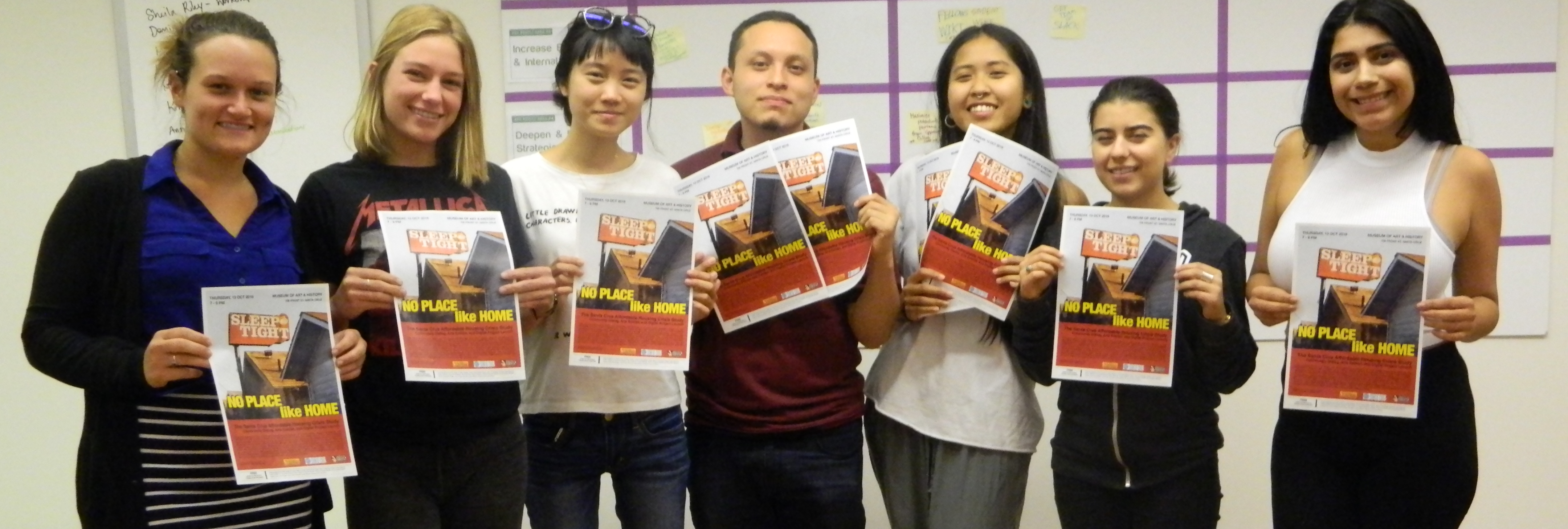Community Engagement
The Hub will have an active outreach to both non-profit and for-profit organizations that are focused on solving social problems. Organizations with whom we have already built relationships include Engineers for a Sustainable World, Community Agroecology Network, Walnut Avenue Family & Women’s Center, Homeless Garden Project, The Workers Lab, Digital Nest, Save our Shores, Coastal Watershed Council, Land Trust of Santa Cruz County, Habitat for Humanity, Community Action Board, MILPA (Motivating Individual Leadership for Public Action) Collective, Community Foundation of Santa Cruz County, Santa Cruz New Tech Meetup, Inspiring Enterprise, Plantronics, Big Creek Lumber, Silicon Valley Leadership Group, American Leadership Forum-Silicon Valley, Goodwill Industries, as well as philanthropic, city and educational organizations in our neighboring counties of Monterey and Santa Clara. A web portal will enable any student, community member, government, or industrial organization to propose a problem for which they are seeking a solution, and the Hub board will review these proposals and invite these organizations to the IDEA Spring Workshop and Exhibition to present and meet students interested in working on these problems.
While the focus is on students at UC Santa Cruz, any student in the University of California system, California State universities, community colleges, and our public high schools may participate as a team member in the IDEA Hub. All projects, team members, and community partners will be listed on the IDEA Hub public website with a contact for students and mentors interested in joining the project. We will also form partnerships with the UC system-wide networks, such as CITRIS, Blum Centers, and places like the D-lab at UC Davis, which promote the deployment of solutions to social challenges. Additional partnerships for scientific and public engagement outreach will be forged with institutions already working with OpenLab, including the Tech Museum in San Jose, Oakland Museum of California, Maker Faire in San Mateo, Randall Museum in San Francisco, California Academy of Sciences, Santa Cruz Museum of Art and History, and the Monterey Bay National Marine Sanctuary Exploration Center in Santa Cruz. Providing students with avenues for community engagement will challenge, nourish, and equip them to analyze critically, understand, and respond to the public understanding and appreciation of their ideas with the intent to drive home the value and necessity of deploying solutions for the social and environmental challenges of our time.
Community Diversity
The UCSC campuses in Santa Cruz and Silicon Valley bridge the Monterey Bay, a largely rural, agriculture and service-dominated economy, and the San Francisco Bay, with a largely urban, technology-dominated economy, both of which contain some of the highest income disparities in the US. As one of the few Hispanic-serving higher education institutions in the US that serves both rural agriculture-based and urban technology-based populations, UCSC is IDEAlly positioned to offer an IDEA Hub focused on technologies and practices for social innovation that has the potential to scale more globally. To build upon this rural and coastal strength, the Slab will use their funding to expand their lab (currently focused on Materials, Semiconductors and Clean Tech) to support Agriculture, Food, Marine and related Bio Technology projects, and the Everett Program will build facilities to support graphic arts and mapping technology for community-focused projects. The IDEA Hub builds particularly on the success of the Everett Program, founded in 1998, to educate and inspire a diverse group of students to use digital tools and social entrepreneurship skills to advance social justice and promote sustainability. Over 80% of the Everett program students are from underrepresented background, including 75% who are women, and more than 60% who are either Latino or African-American. In addition, students in the Arts department are over 35% Latino or Hispanic (which is greater than the percentage of white students). The CIED, and initial IDEA Hub Director, Carter has a strong record of including women and underrepresented minorities with strong STEM skills in her laboratory, many who have gone on to start-up companies. Over 60% of Carter’s graduate students have been women and 20% have been underrepresented minorities, which are both high percentages for a Physics graduate program. We also note that UCSC does not have either a business or law school so that the training programs coming out of the IDEA Hub will provide most of the business and legal training for our diverse student entrepreneurs, who would otherwise not easily have access to such training.


